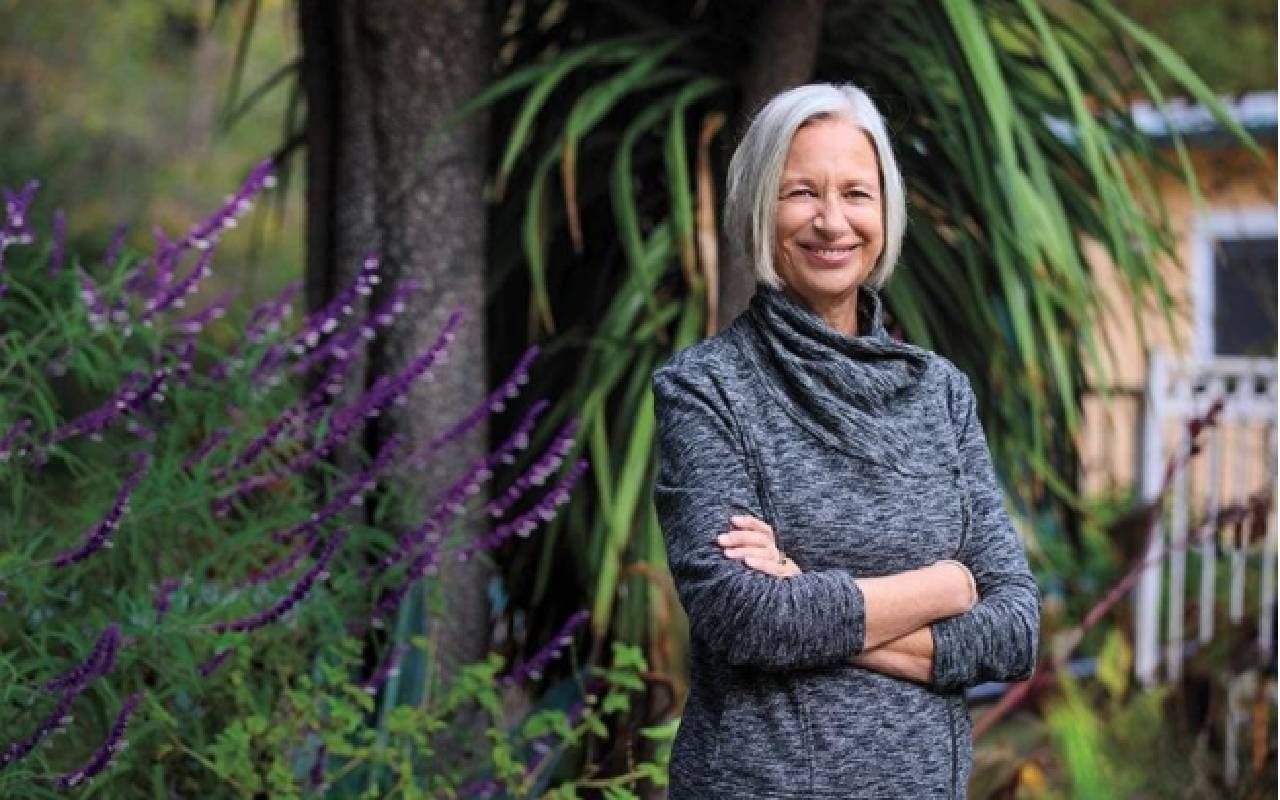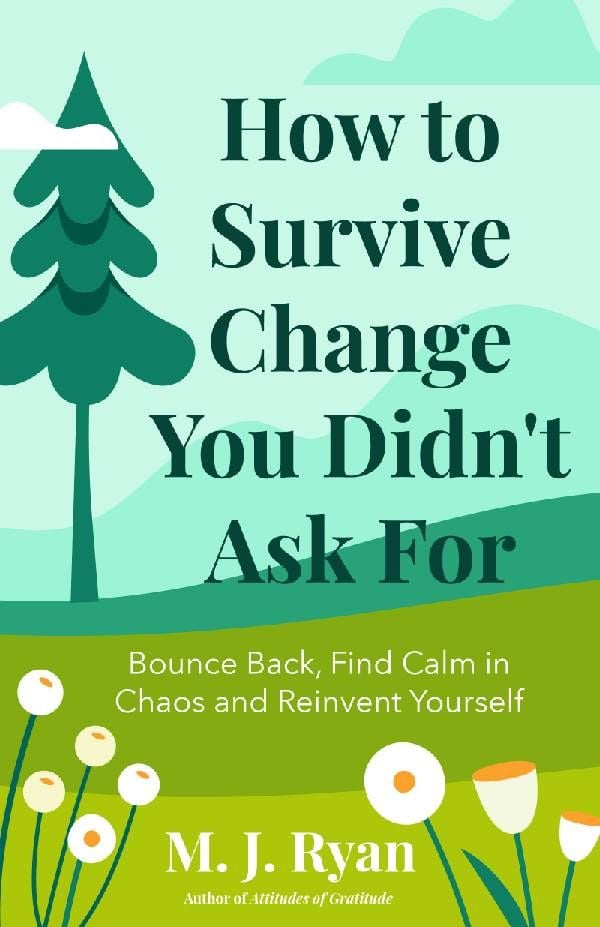Leveraging Age in Dealing With Unexpected Changes: A Q&A With M.J. Ryan
The bestselling author and change expert suggests using life experience and other tips for moving forward

M.J. Ryan, bestselling author of the recently updated book, "How to Survive Change You Didn't Ask For; Bounce Back, Find Calm in Chaos and Reinvent Yourself" began her career in journalism as a writer, editor and then book publisher focusing on self-help topics related to sexuality, leadership and health, before leveraging her expertise to provide executive coaching services to thousands of professionals around the world.
With bestselling titles such as "The Happiness Makeover," "Attitudes of Gratitude" and "The Power of Patience," Ryan has spent decades studying how people successfully move through change.
Upon submitting her first manuscript on ways to make New Year's resolutions stick, Ryan realized the research she had just completed was helpful for people who had proactively decided to change but then wondered, "How do people handle change when it's something they didn't expect or ask for?"
I spoke with Ryan via Zoom to hear her thoughts on using age to our advantage in dealing with the unexpected. The following interview was edited for clarity and length.
Next Avenue: In your experience, where do you see older adults struggle the most with change they didn't ask for?
M.J. Ryan: It's really easy for people to get caught up in regret. Regret around promises made and left unfulfilled. For instance, I've coached clients dealing with the death of a spouse. Widows often come in and say, 'But it wasn't supposed to be this way. We had our life planned.' Of course, it's terribly sad. Then there are other losses, from when a body changes to the world changing around us. Impermanence is true. It's why I am fundamentally Buddhist. The more we understand we're not in charge of much of what happens to us — and that we can't predict what will occur or when — the easier it is to accept and move forward. My friends and I are in our 70s, and suddenly, we can't walk like we used to. Combine all the personal things that come to us as we get older with being in a period over the last 20 years of such profound change, everything is just different.
With so many life lessons the older we get, how would you recommend someone put any regrets into perspective, finding the positive rather than focusing on what could have been?
"Combine all the personal things that come to us as we get older with being in a period over the last 20 years of such profound change, everything is just different. "
There's been a lot of research around the function of regret, and it turns out it's about helping us learn from and avoid it in the future. Regrets are useful to mine for any lessons you can glean. Allow yourself to ask, 'What can I be learning from this?' Sometimes, you may realize 'it's too late,' but maybe there is something you could do differently the next time around. Take your mind seriously and figure out what it's trying to tell you.
Of course, as we age, we'll have more opportunities to experience unplanned and unfortunate events. In your book, you talk about stopping and noticing how one has moved through accepting change in the past. Can you share your idea around AdaptAbility and how your book can help those of us over 50?
In my book and practice, I work with clients on AdaptAbility. One key component of becoming successful through change is being a lifelong learner. As we get older, more and more events will transpire we didn't ask for. I teach people to go through the process of dealing with the change. This means once someone has accepted their loss through the five stages of grief, the next step is to ask yourself, 'What can I do to deal with it?' 'And how do I get into action to deal with it?' It may sound easy, but it's hard because it's our feelings.
If you've been downsized or outsourced, use your newfound time to discover (or rediscover) your passion. Contemplate something you loved when you were younger but haven't yet done due to other commitments. Ask, 'If I can do anything, what would I want to do?' Once you've successfully gone through all of these phases, you'll be better prepared to adapt in the future.
Those are great suggestions to ask oneself. Yet, people are often afraid of the unknown. How would you recommend someone facing change deal with fear?
This is a situation where age and experience can really help us. The best way to deal with fear is to remember what happened to you before. Reconnect with your experiences. How did you get through a challenging event in the past? What did you do? You may have written a letter, called a friend, or asked someone for support. The more we've lived, the more we know we can do. Fear makes us forget we already know how to accept and change. Also, don't listen to what others have done because that only creates interference; think about your experience. When we're stuck, we become disconnected from our reality. My advice is to replicate what's worked previously, rinse and repeat.
Another thought, there's a wonderful practice that comes from Buddhism, which is to remember you are not alone. It helps to know millions of people are experiencing the exact same thing you are. And they, too, are scared, depressed or worried. When we connect to our common humanity, it doesn't feel as terrible; we don't feel as alone, and we can see the world is not singling us when tragedy strikes.
"When we're stuck, we become disconnected from our reality. My advice is to replicate what's worked previously, rinse and repeat."
In your book, you discuss the brain's resiliency, and the fact humans can create new cells until their last breath. What suggestions would you offer to older adults regarding preparing for even expected changes?
Practicing resilience is key. Studies show you can do things to help with resilience by focusing on positive emotions. Positive emotions help our body and minds come back into balance — because when we reduce our stress and increase our relaxation response, we can recover our mind, body, and spirits. Think of it as a teeter-totter. When you look at resilience, it's all about broadening the skills you already have and building upon them.
For example, being optimistic about your circumstances and recognizing even though life is tough now, it won't be like this forever is one way to enhance resilience. Humor is another method of managing change and putting life into perspective. Consider, what could be funny about your situation? Next is to practice gratitude by noticing the good things in your life. Lastly, find meaning in what's going on. That's an advanced form of resilience — this isn't something you would want to do right away after a crisis. But soon afterwards. Eventually, you may say, 'That was the best thing that ever happened to me.' However, don't say that same statement to anyone else. Doing so would deny how terrible someone else feels in the moment. Everyone needs to uncover lessons learned on their own. It's a process. It can take a while. Ultimately, remind yourself you have survived in the past. Doing so can provide the trust you will survive the next hard thing, too.

Here are five tips from Ryan’s latest book:
- Focus on the solution, not the problem. Because society rewards analytic thinking, we believe that identifying the cause is the answer: Why is this happening? That’s a starting point, but don’t spend too much time there. What are you going to do about where you are?
- What if you don’t believe you have the confidence or talent to find a solution? Pretend you do. Turns out that “fake it till you make it” has validity in brain science — the thoughts we hold and actions you take really do create new pathways in your brain.
- What really matters right now? That’s a question that will help you keep your eye on priorities.
- Celebrate success along the way, no matter how small: a new connection, a possible lead, a new idea. Give yourself credit for moving forward in a difficult situation. At the end of the day, look at what you’ve done and celebrate whatever accomplishment you can. Celebration creates positive energy and forward momentum.
- If you find yourself worrying all the time, set aside a 15-minute worry time, say 5 p.m. every day. Then when your mind starts worrying at other times, tell yourself it’s not worry time and distract yourself — read a good book, do a puzzle, something that occupies your mind.


